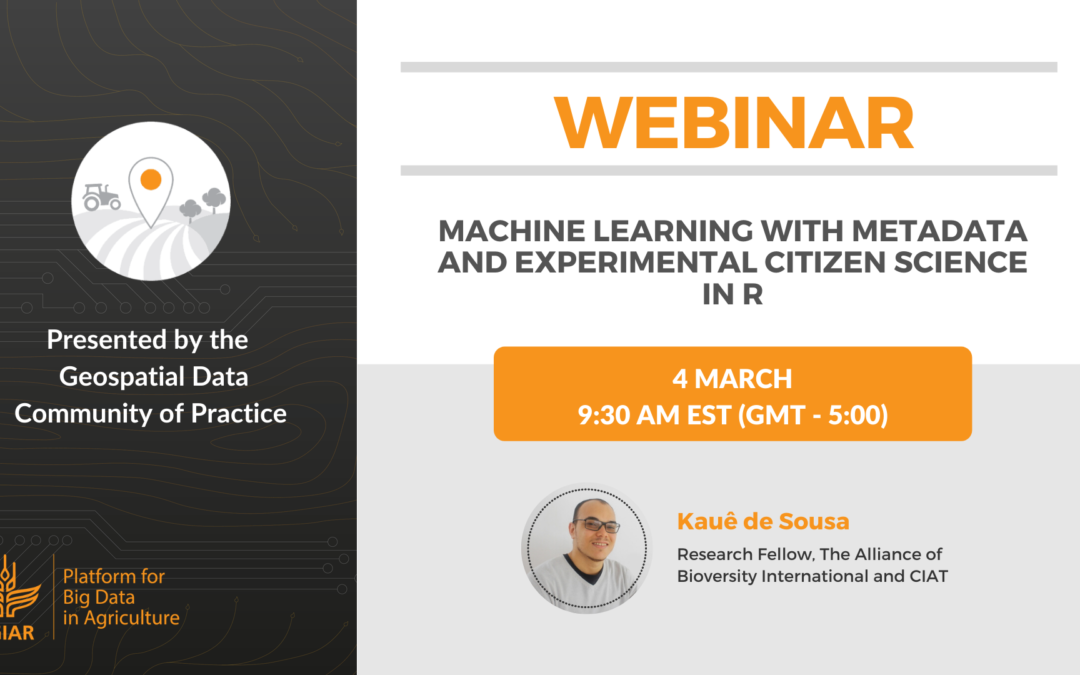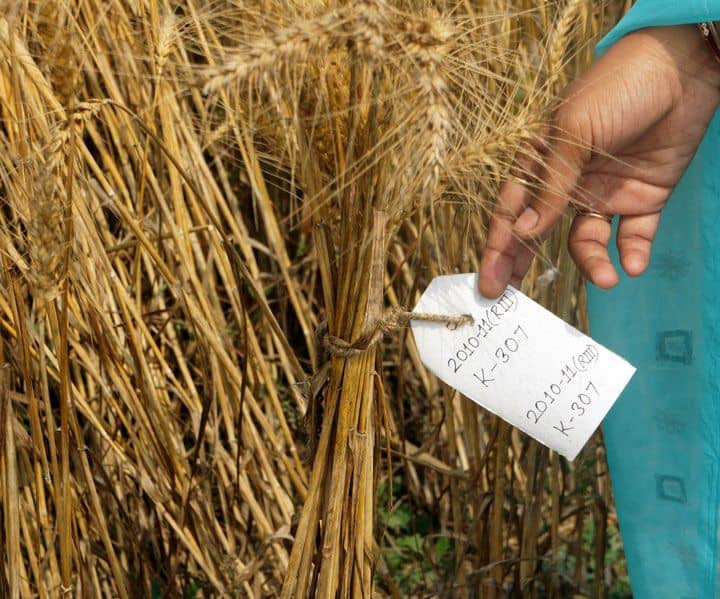
Webinar – Machine Learning with Metadata and Experimental Citizen Science in R
Webinar organized by the Geospatial Data Community of Practice of the CGIAR Platform for Big Data in Agriculture.

by Hannah Craig | Mar 12, 2020 | Communities of Practice, Geospatial CoP, News, Webinar
Webinar organized by the Geospatial Data Community of Practice of the CGIAR Platform for Big Data in Agriculture.

by CGIAR-CSI | Mar 8, 2020 | Geospatial CoP, Video, Webinar
Machine learning is the scientific study of algorithms and statistical models that provides the computer the ability to automatically learn and improve from experience. During the 2020 CGIAR-CSI Community Meeting, Kauê de Sousa, Research Fellow from Bioversity-CIAT Alliance, presented a set of tools developed to facilitate the analysis of metadata and experimental citizen science data, […]

by Bioversity International | Feb 19, 2019 | CGIAR Updates
A new study in PNAS addresses the challenge of climate adaptation in a way that is both scalable and targeted. Scientists demonstrate a unique approach using crowdsourced citizen science that capitalizes on farmers’ knowledge.
The post Farmer science accelerates climate adaptation appeared first on CGIAR.
CGIAR Platform for Big Data in Agriculture advocates open data for agricultural research for development. It considers that opening up research data for scrutiny and reuse confers significant benefits to society.
However, the Platform appreciates that not all research data can be open and that a broad range of legitimate circumstances may require data to be restricted.

As an integral component of its advocacy for open data, the Platform promotes responsible data management through the entire research data lifecycle from planning, collecting, storing, disclosing or publishing, transferring, discovery and archiving.
These guidelines were created from information collected from: review on best and emerging practices across various sectors in the fast changing landscape of privacy and ethics (130 external resources); privacy and ethic materials sourced from seven CGIAR centers; first draft was circulated for input and feedback across CGIAR and incorporated into this edition. It’s important to note that this is an evolving document, the next stage is to consult externally for further input.
These Guidelines are intended to assist agricultural researchers handle privacy and personally identifiable information (PII) in the research project data lifecycle.


Ensure compatibility with the DMP-PII (as above) and also the purpose for which prior informed consent has been obtained
Ensure PII is stored securely to protect privacy, through organizational or project specific safeguards to prevent unauthorized access, accidental disclosure or breach of data (physical & technical)
Don’t store data in unsecured locations or on unsecured devices or servers
Don’t store encrypted data and encryption keys in locations where they can be easily accessed simultaneously
Don’t underestimate the importance and value of administrative safeguards to standardize practices (i.e. organizational policies, procedures and maintenance of security measures that are designed to protect private information, data and access)